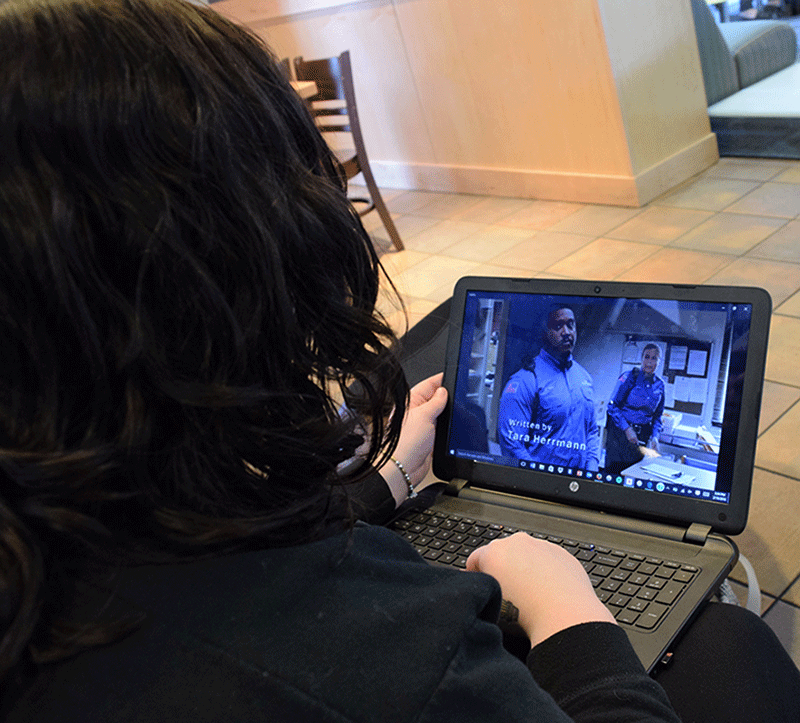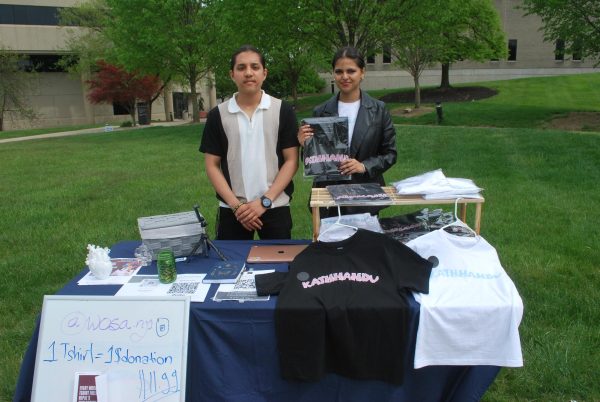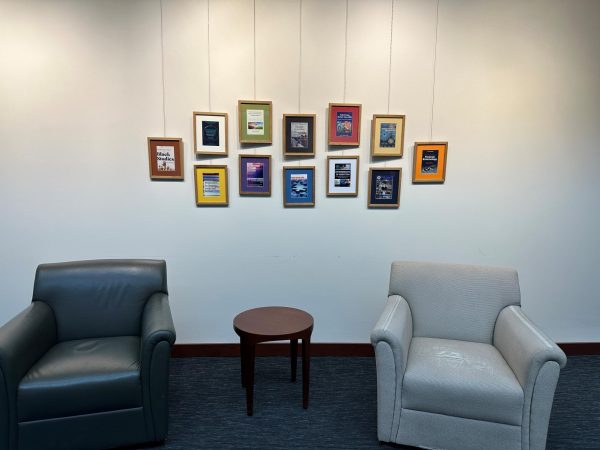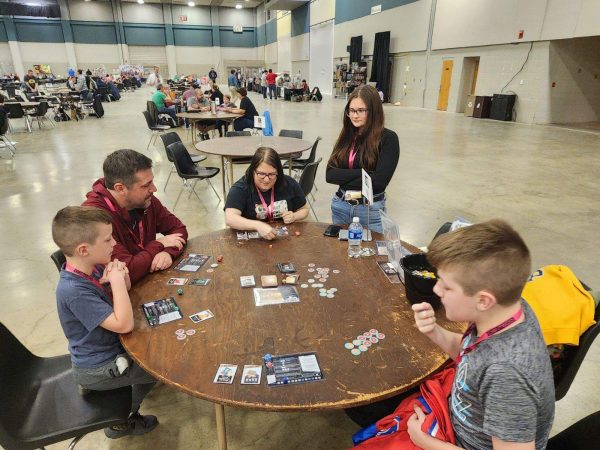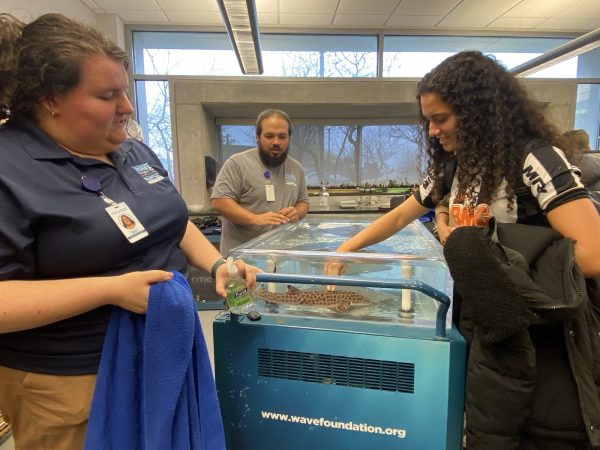Netflix and procrastinate: the art of binge-watching in college
Erica Bowen watches her favorite show on Netflix. She often takes breaks from studying to enjoy online shows.
It’s a familiar scene in the modern college climate; a student lounges in the library or perhaps a café, their face illuminated by a computer screen streaming their favorite show, and earbuds closing them off from outside noises, in order to take a break from studying.
In a survey conducted by Netflix in February 2014, 73 percent of those sampled defined binge-watching as “watching 2-6 episodes of the same TV show in one setting.”
Binge-watching comes easy when the next episode plays automatically, according to sophomore respiratory care major Marisa Ripard.
“It’s a getaway,” freshman psychology major Erica Bowen said. “It’s so easy to just go to your laptop and open up a tab and say, ‘I’ll just watch 15 minutes. Okay, another episode. Oh, well, I’ll just study in the morning.’”
According to Ali Godel, an honor’s professor who teaches several film courses, her children have grown accustomed to being able to stream whatever they want without commercials in the world of instant and accessible streaming.
In a study of 1,000 participants conducted by Pricewaterhousecoopers, an accounting firm, 55 percent of adults identify as binge-watchers. When looking at millennials, the percentage is even higher.
In addition, Netflix saw an increase of 25 percent in subscription rates between 2013 and 2014 while Amazon Video saw an increase of 14 percent and Hulu increased by 3 percent.
“It can be really difficult when we’re watching PBS when they’re saying, ‘I really want to watch ‘Curious George’ but not this episode! Change it!’” Godel said. “They’re so used to being able to choose; it’s just there for them.”
With content and streaming so readily available, as Bowen said, it becomes simpler to avoid work and get lost in streaming episodes of one’s favorite program.
Storytelling in its very nature releases the hormones of oxytocin and cortisol, which are linked to the formation of emotions as well as attachment, according to a study by neuroeconomist Paul Zak.
Furthermore, when Zak showed his participants videos, depending on the content, different hormones were shown to release in their participant’s bodies; television and film does not only entertain us, but it works to invest us by forming emotional bonds to the characters and the plot they find themselves in. For the binge-watcher it is this emotional investment that keeps the viewer coming.
Godel cited that, in the busy lives of students and professors alike, streaming services such as Netflix and Amazon Video are more flexible and convenient when it comes to being entertained on a schedule.
“My life isn’t on a TV schedule, but I do enjoy watching television or film,” Godel said. “It’s nice to say, ‘Well, it’s 8:45 so instead of having to tune in to the middle of the show, I can just pick something and start from the beginning.’”
“Orange is the New Black” is one of Bowen’s vices; in fact, when the new season aired last summer, Bowen watched the entire season in less than a day. For Bowen, it was her investment in the characters, their relationships and ultimately their lives that kept her watching episode after episode in a constant stream.
For those who are procrastinators at heart, the challenge to overcome the lure of streaming services proves even more difficult, according to a study conducted by Yoon Hi Sung, Eun Yeon Kang and Wei-Na Lee from the University of Texas at Austin.
The study, conducted on 316 18 to 29 year olds, found that those who had less self-control were more likely to continue watching more episodes, even if they had other work to be done.
Binge-watching and streaming can become a deterrent for some students, Godel said, in regards to their studies adding that if used in moderation it’s harmless.
“I don’t study near as much as I should,” Bowen said, adding that she often uses the promise of watching an episode as a reward to doing schoolwork. “It’s partially from Netflix, because it’s just there and I want to watch it so why not?”
Despite often watching Netflix and its counterparts when she has the chance, Ripard said that streaming services don’t get in the way of her getting schoolwork done, as she’s been able to separate them from one another. For Ripard, streaming her shows, which include “How I Met Your Mother” and “Criminal Minds”, is a way to relax after studying.
As Netflix and other streaming services begin to take precedence over traditional television, binging on content that was once meant to view in weekly increments is becoming a commonality, and as Godel noted, in terms of how her children are growing up with television, it allows the viewer to be in power of consuming content when they want it and how they want it.


